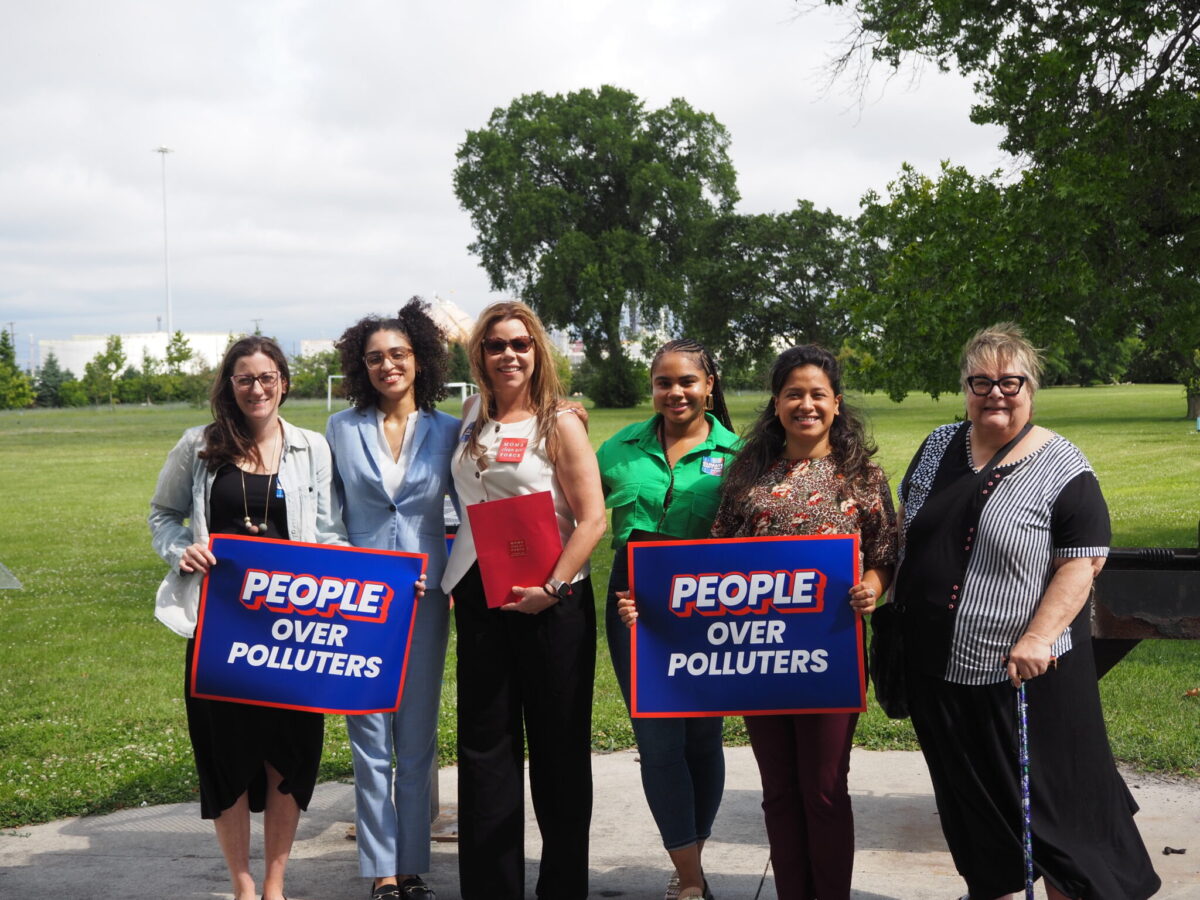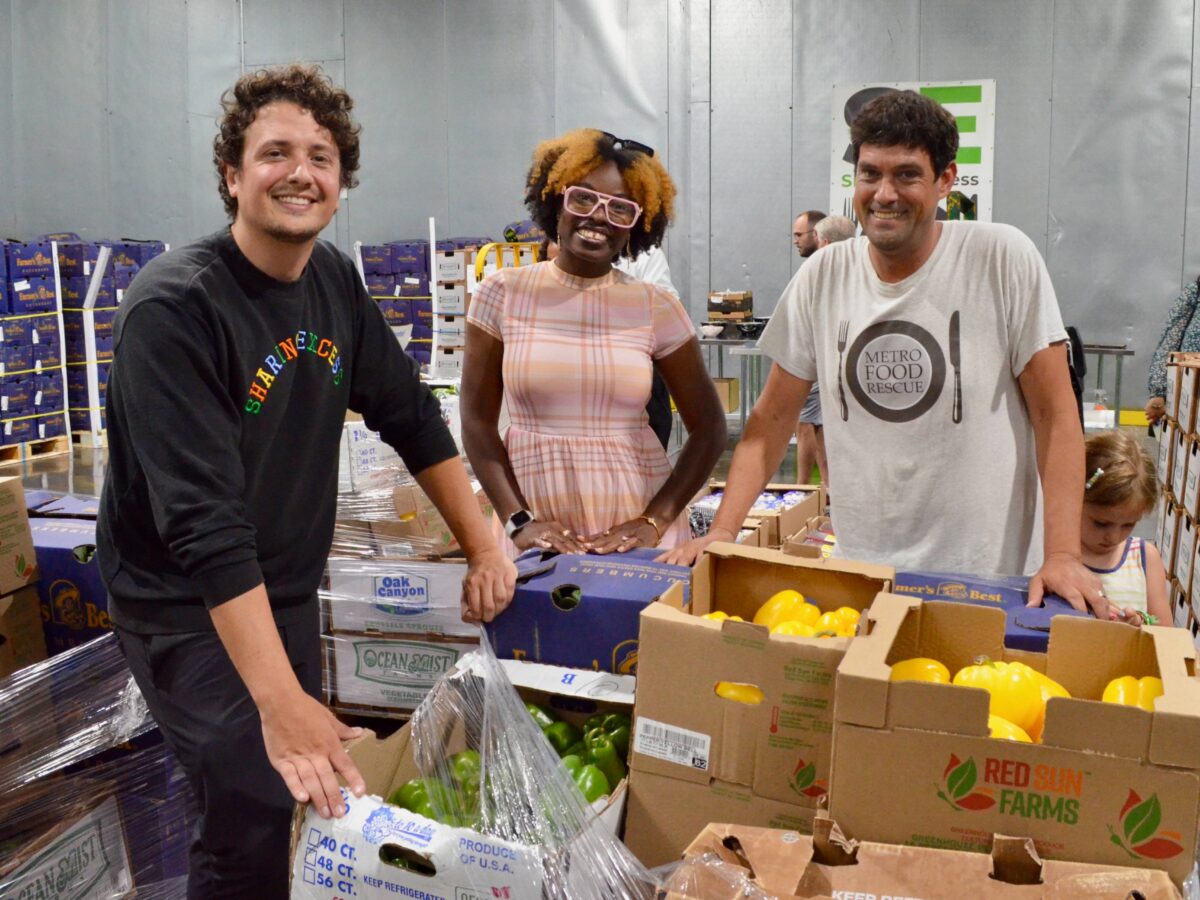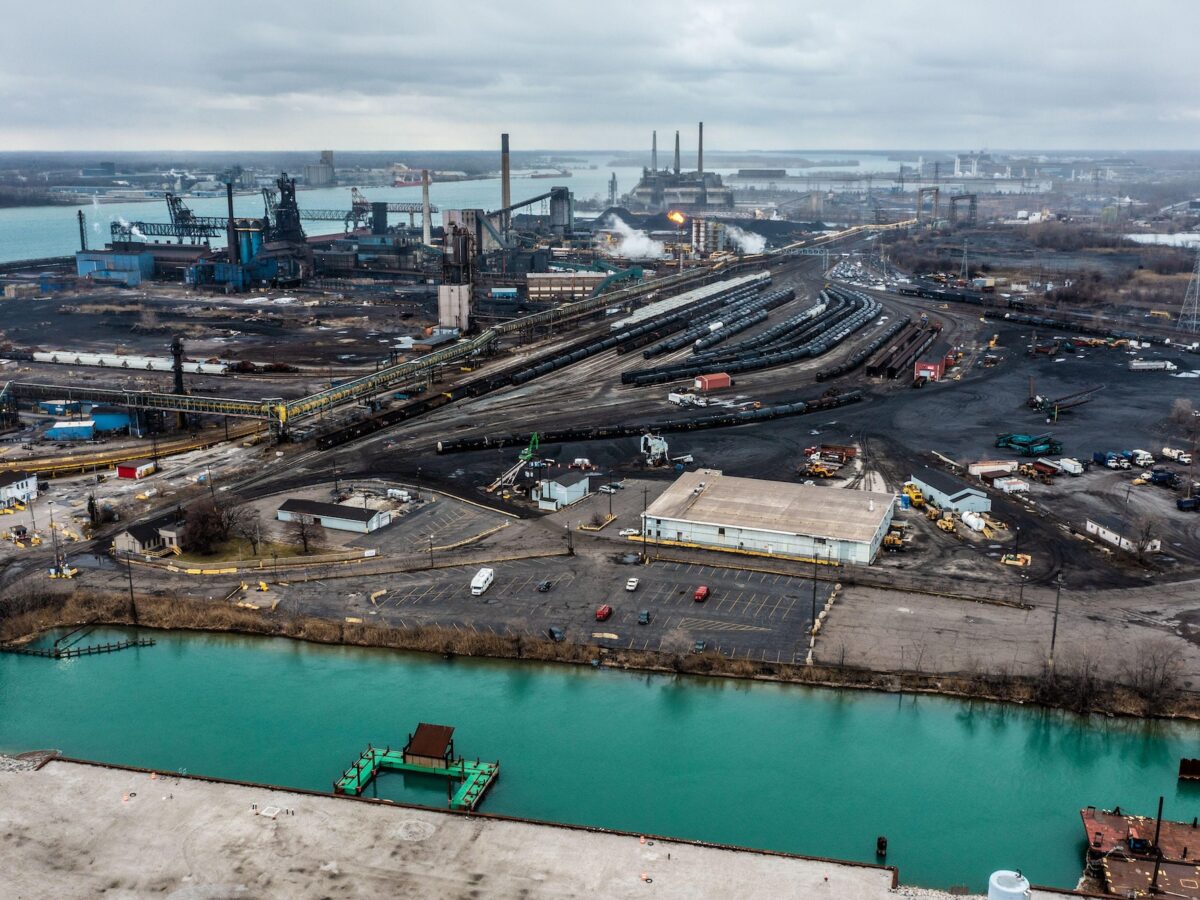Overview:
-Rollbacks to pollution regulations will cost lives in Detroit, says Eastside Community Network's Meghan Richards.
-"It's really just a matter of survival for almost all of us," she says.
-Detroit City Councilmember Gabriela Santiago-Romero encourages Detroiters to form a united front against pollution.
by KYLE DAVIDSON
Environmental activists, community members and local leaders on Thursday gathered in Southwest Detroit to speak out against the Trump administration’s efforts to weaken or outright eliminate key pollution protections.
In Kemeny Park, just a short distance from the Marathon Petroleum Corporation’s Detroit refinery, speakers slammed Environmental Protection Agency Administrator Lee Zeldin’s work to roll back rules on mercury and air pollution, end the good neighbor rule – intended to limit smog in communities located downwind from power plants and industrial facilities – and offer exemptions to Clean Air Act regulations.
Southwest Detroit is home to more than 150 manufacturing facilities, and its residents have long suffered from the impacts of air pollution with significantly higher rates for cancer, asthma and respiratory illness than the rest of the state.
According to the World Health Organization, air pollution is strongly tied to stroke and heart disease with some evidence linking pollution to diabetes, cognitive impairment, neurological diseases and increased risk of adverse pregnancy outcomes like low birth weight.
But rather than strengthening pollution protections, the Trump administration is rolling them back, with environmentalists arguing the government is putting polluters first.
‘Extreme heat meets poor air quality’ in Detroit
“This isn’t just policy, it’s personal, and these rollbacks are literally going to cost lives,” said Meghan Richards, the assistant director of climate equity for Detroit’s Eastside Community Network.
While Southwest Detroit makes headlines for its exposure to pollution, residents of the city’s east side share many of the same burdens, Richards said.
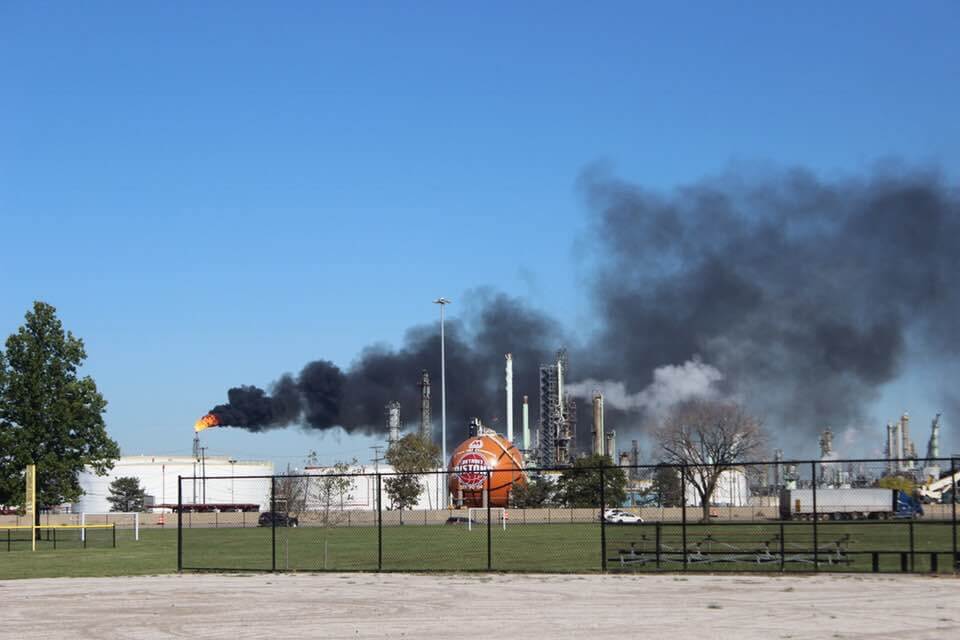
“We have neighborhoods where folks can’t open their windows in the summer, extreme heat meets poor air quality, and where people are suffering silently, and it’s not just because they’re passive, but it’s because it’s really just a matter of survival for almost all of us,” Richards said.
These issues are only intensified by climate change, Richards said, with residents already suffering from systematic disinvestment, old infrastructure and environmental neglect.
“As temperature rises, so does the threat of pollution. Heat doesn’t just make us uncomfortable, it intensifies ground level ozone, triggering more asthma attacks, heart issues and emergency room visits. That’s especially dangerous for elders, children and people with chronic illnesses,” Richards said.
While Detroiters are resilient, resilience should not be code for abandonment, Richards said, arguing that giving big polluters the opportunity to opt out of regulations is sanctioning harm.
“We deserve more than survival. We deserve justice. We deserve to be able to live and enjoy and have peace and happiness. We need climate standards that protect – not punish – Black, brown and low-income communities who’ve historically borne the brunt of environmental racism. And I want to be very clear that the communities who are harmed the most have done the very least to cause the harm,” Richards said.

MORE COVERAGE FROM PLANET DETROIT
Detroit food rescue partnership kicks off with 617,000 pounds of produce in 2 months
Sharing Excess, a Philadelphia-based organization that redistributes surplus food, and West Bloomfield Township-based Metro Food Rescue are collaborating to rescue up to an estimated 5 million pounds of fruits and vegetables annually for people in need. The two nonprofits headquartered in a Delray warehouse where they will sort and repack surplus produce rescued from vendors…
Michigan regulators approve air pollution permit for Zug Island coke facility
Michigan regulators greenlight permit for a coke screener at DTE Energy-owned EES Coke Battery on Zug Island.
Balancing safety and community in Southwest Detroit: Lessons from Clark Park’s revitalization
In Southwest Detroit, Clark Park stands as a testament to community resilience, evolving from a site of drug activity and violence into a vibrant neighborhood hub. This transformation, driven by grassroots initiatives and city collaborations, highlights the power of community-centered policing, though it sparks debate over police roles in public spaces.
Detroit must fight pollution rollbacks: Santiago-Romero
Gabriela Santiago-Romero, Detroit city councilmember for the city’s sixth district, which includes Southwest Detroit, emphasized that behind every rollback is a child who will need to miss school, an elder struggling to breathe in the summer and families forced to choose between paying for medicine or paying for clean water.
While Santiago-Romero said she successfully pressed for a dust ordinance to require polluters to control the dust and particulate matter their facilities release, she stressed that the ordinance came directly from listening to residents.
“Environmental justice is not just a policy fight. It’s a people’s movement. We are a community who is going to continue to organize, and we need your voices at city hall. We need you to speak to your neighbors, to your schools, to let your folks know, your friends know, about the issues. With corporate polluters and now climate change roaring through our world, everyone’s fights in this movement is critical,” Santiago-Romero said.
In addition to strong federal regulations, Detroiters need support for clean energy to cut down on fossil fuel emissions, alongside bold local leadership to stand up for the people, she said.
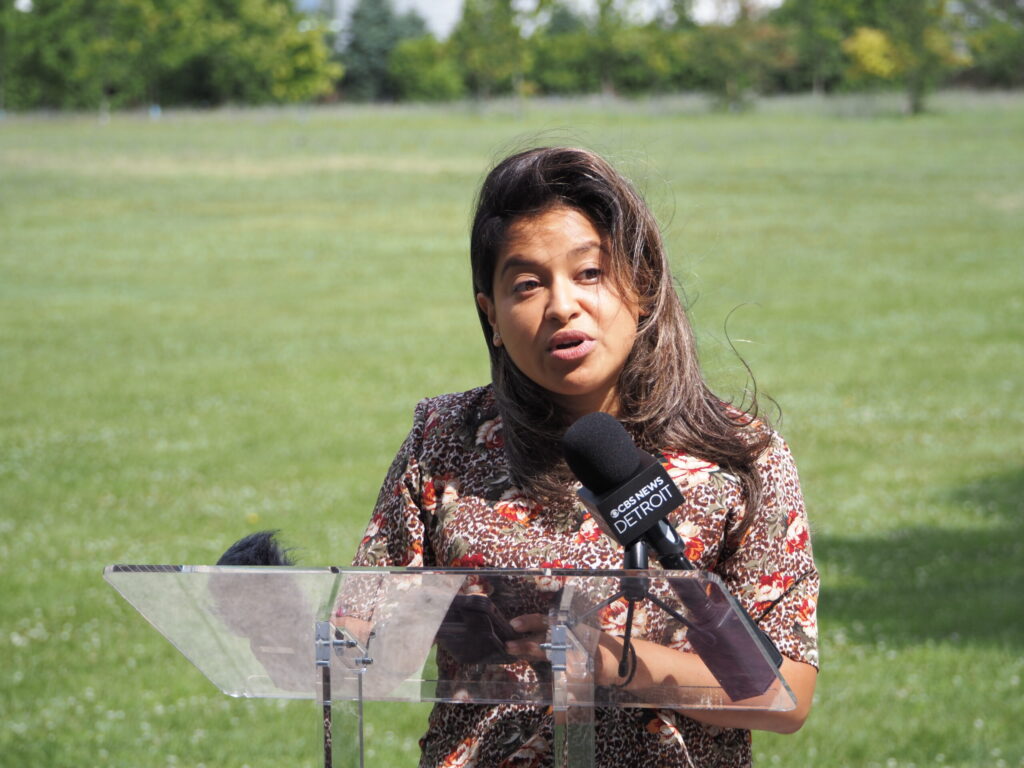
As part of Republicans’ “Big Beautiful Bill,” Congress approved cuts to key clean energy provisions within former President Joe Biden’s Inflation Reduction Act, slashing tax incentives for solar and wind generation.
While Congress works to roll back progress and CEOs seek exemptions on pollution, Detroiters need to present a united front, Santiago-Romero said.
“This is the moment to fight back against the rollback, against the lies, against the idea that some communities are disposable. Detroit is not disposable. The people of Michigan are not disposable,” she said.
Michigan Advance is part of States Newsroom, a nonprofit news network supported by grants and a coalition of donors as a 501c(3) public charity. Michigan Advance maintains editorial independence. Contact Editor Jon King for questions: info@michiganadvance.com.

